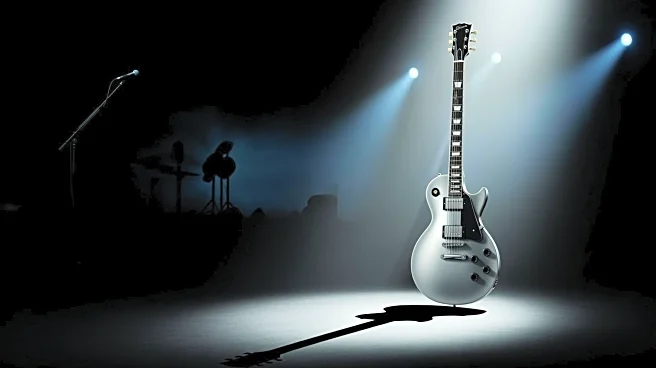What's Happening?
Ace Frehley, the original lead guitarist and founding member of the rock band Kiss, has died at the age of 74. Known for his 'Spaceman' persona, Frehley was instrumental in shaping the band's theatrical stage presence, which included pyrotechnics, elaborate
costumes, and iconic black-and-white face paint. Kiss, co-founded by Frehley in 1973 alongside Gene Simmons, Paul Stanley, and Peter Criss, became a defining force in hard rock and glam rock, influencing the heavy metal genre. Frehley left the band in 1982 but returned for a reunion tour in 1996, remaining until 2002. His family announced his death on October 16, 2025, attributing it to a recent fall at his home.
Why It's Important?
Ace Frehley's passing marks the end of an era for Kiss, a band that has significantly influenced rock music and pop culture. Kiss's unique style and sound have left a lasting impact on the music industry, with all 26 of their albums achieving gold status and 14 going platinum. Frehley's contributions to the band's success and his solo work, including the hit 'New York Groove,' have cemented his legacy as a pivotal figure in rock history. His death is a significant loss to fans and the music community, highlighting the enduring influence of Kiss's theatrical and musical innovations.
What's Next?
The music industry and fans worldwide are likely to pay tribute to Ace Frehley's legacy, celebrating his contributions to rock music. Memorials and tributes may be organized, reflecting on his impact on the genre and the band's history. Kiss's remaining members may issue statements or participate in commemorative events, honoring Frehley's role in the band's success. The band's influence on future generations of musicians and fans will continue, as they reflect on the cultural and musical shifts initiated by Kiss.
Beyond the Headlines
Ace Frehley's death may prompt discussions on the evolution of rock music and the role of theatricality in performance art. Kiss's approach to music and stage presence has influenced not only musicians but also the broader entertainment industry, setting a precedent for integrating visual spectacle with musical performance. Frehley's legacy may inspire new artists to explore innovative ways of engaging audiences, blending music with visual and theatrical elements.















